Middlesbrough Central Library: Hugs, sleep and Islam for Dummies
- Published
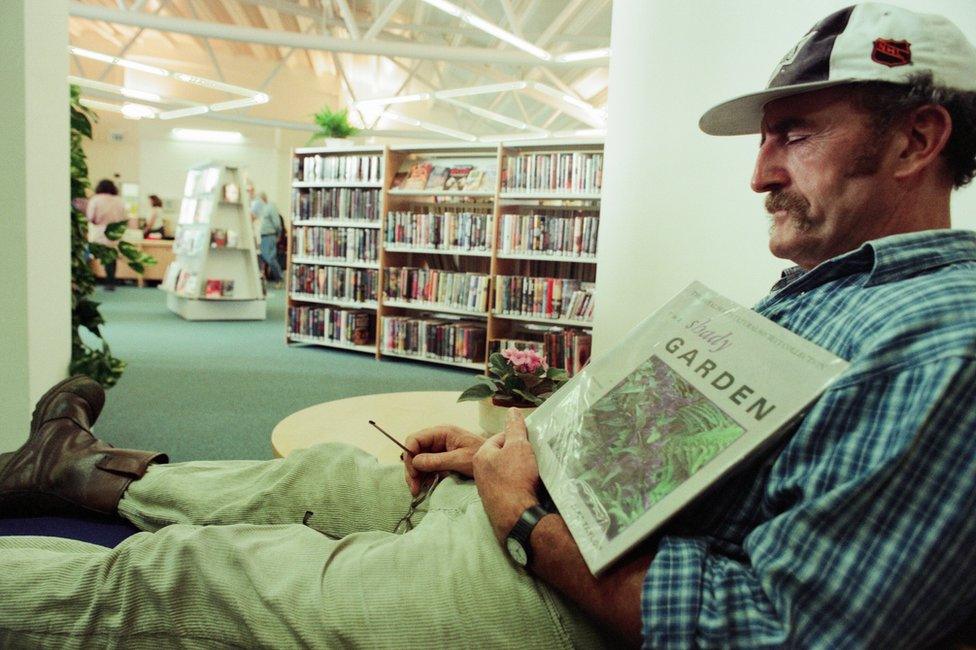
Middlesbrough's Berwick Hills library - a quiet haven even in 1997
Libraries are more than buildings with books in. They are free gateways to infinite worlds and providers of help, advice and unexpected acts of kindness. As part of We Are Middlesbrough, the BBC has been finding out how the town's central library cares for its people.
Occasionally, when librarian Jennifer O'Donnell was somewhere in Middlesbrough's Central Library, maybe putting books away, she was called back to the lending desk.
She was needed for something almost definitely outside her job description.
"An old lady used to ask for a hug when she came in to collect her books," she says.
"She lived alone and I think she just wanted a little contact."
Librarians regularly have stories like this.
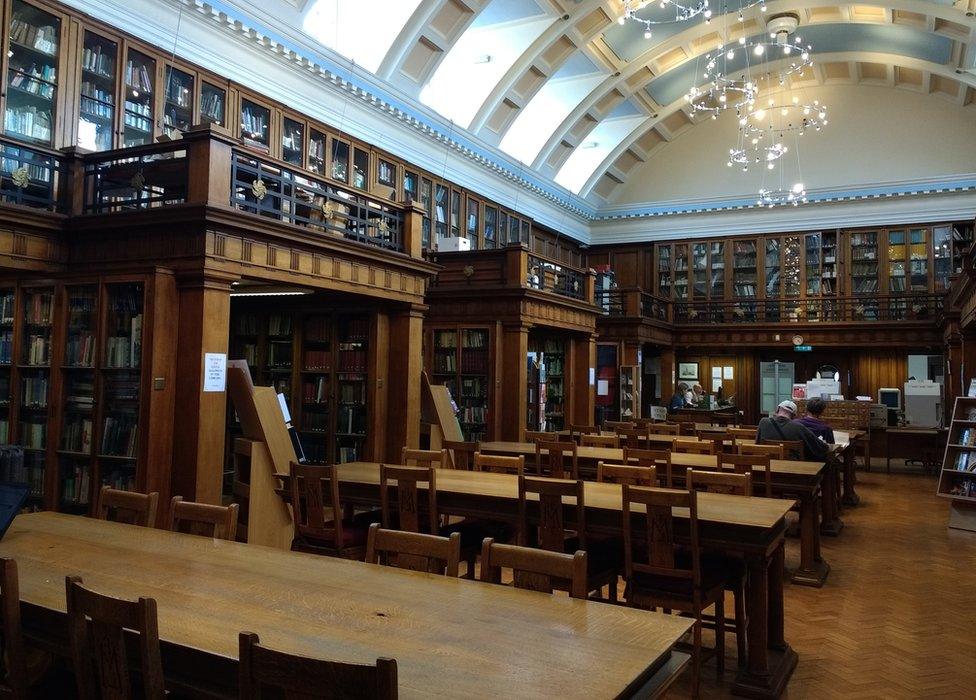
When first built, the library's boys' and girls' sections were separated by a screen and there was a reading room just for ladies
Middlesbrough has 11 libraries, external, some prettier than others. But the town's central library is a Victorian treat with a reference section that doesn't look like it's changed since the building opened in 1912.
Scottish-American philanthropist Andrew Carnegie had a soft spot for libraries and donated the £15,000 cost of building it.
On a warm afternoon in May the book shelves have a few people browsing the thrillers and romances but every computer is in use.
Robert Kaczkowski is sitting reading Islam for Dummies, part of a series of reference books that takes in subjects as diverse as parenting, carpentry and Shakespeare.
"My friend is a Muslim and I'm just trying to understand," he says.
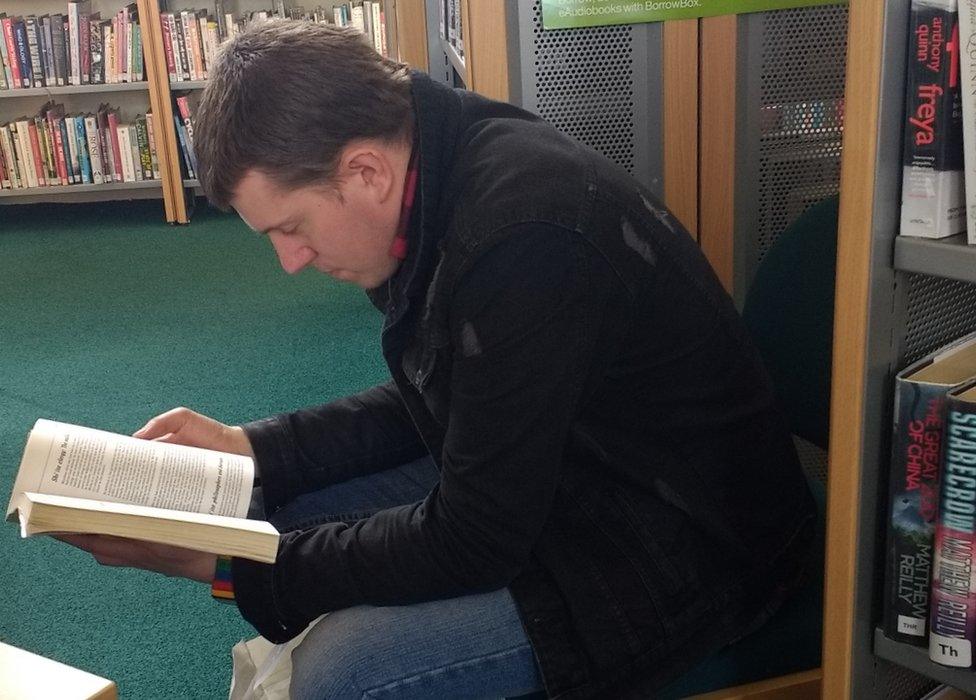
Robert Kaczkowski came to learn about another religion
He likes the central library because it's quiet.
"It's quite enclosed, it means you get a bit of privacy," he says.
"I don't like those libraries where it's open plan and everyone's watching you."
Author Glen James Brown also likes a quiet library.
He lives up the road in Chester-le-Street but pushed Middlesbrough on to the fiction bookshelves with his novel Ironopolis, set on a council estate amid the town's industrial decline.
Like many authors, he's not sure he would have become a writer had he not spent so much time in his local library as a child.
"I loved stories and I loved reading because of libraries," he says
"I still remember the thrill of going down there on a Saturday and the smell of the place.
"It's an access for anybody, from any walk of life. I mean, books cost money to buy. Not everybody has a lot of money."

Author Glen James Brown believes libraries are for everyone, regardless of wealth or background
Brown accepts the importance of creches and community hubs in today's libraries but he mourns that the "books come second".
"It's kind of this weird multi-use space now," he says.
They are still safe havens, but books "aren't top of the list now", he thinks.
But they still provide help, advice and information.
The men who call Ms O'Donnell from noisy pubs asking her to settle a bet still get what they need.
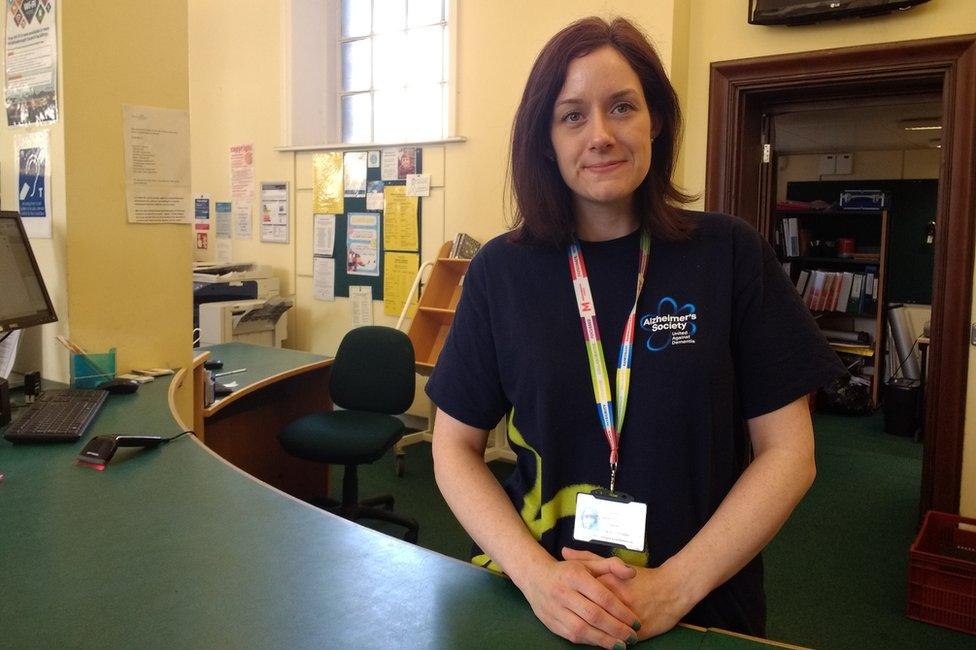
Librarian Jennifer O'Donnell paid off fines for a borrower who had been in hospital
Some come for other reasons.
She once woke up someone "with the imprint of the keyboard still on their face, swearing blind that they were not asleep".
The computers are ICT officer David Harrington's area.
They are a big part of the library now, sitting rather incongruously in the Victorian building among its old card-filing cabinets and wooden desks.
People use them for submitting job applications, honing their CVs, practising their driving test theory, applying for benefits.
For some, it's the first time they've gone near a computer and it is a bit of a shock.
"As well as being newly unemployed they're also being forced onto a PC," Mr Harrington says.
They need help - emotionally as well as practically - and "sometimes you find yourself being a social worker", he says.
But computers can only do so much.
He quotes author Neil Gaiman: "Google can bring you back 100,000 answers - a librarian can bring you back the right one."
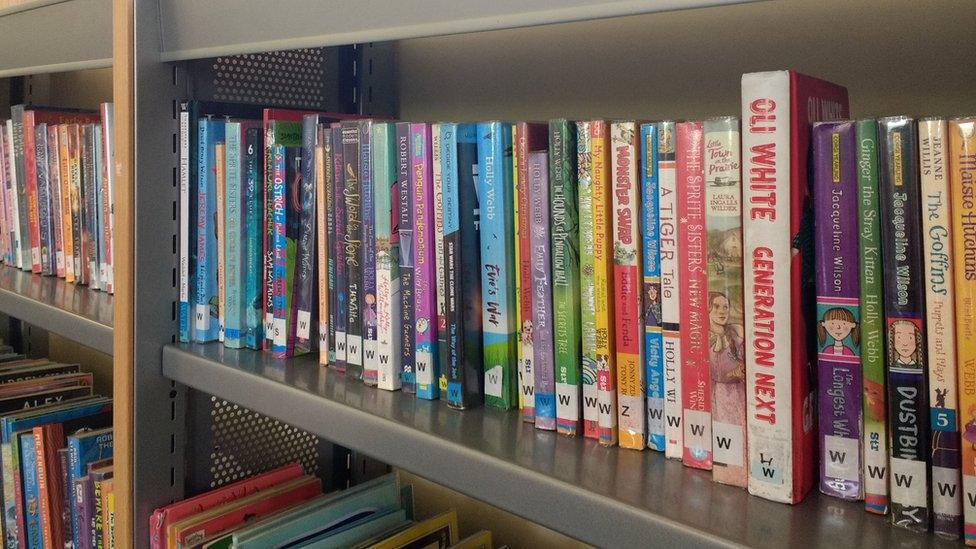
The number of books you are allowed to take out seems to have increased dramatically
Richard Bailey has brought his daughters Isabel and Imogen.
They're allowed something like 13 books now, he thinks. Far more than the four it once was.
In the end, it comes down to what they can carry.
Despite their proliferating computers, libraries are a useful tool against the assault of the internet, he thinks.
"It's drilling it into my daughters that you can pick anything," he says.
"Get them out of the mindset of head stuck in phone."
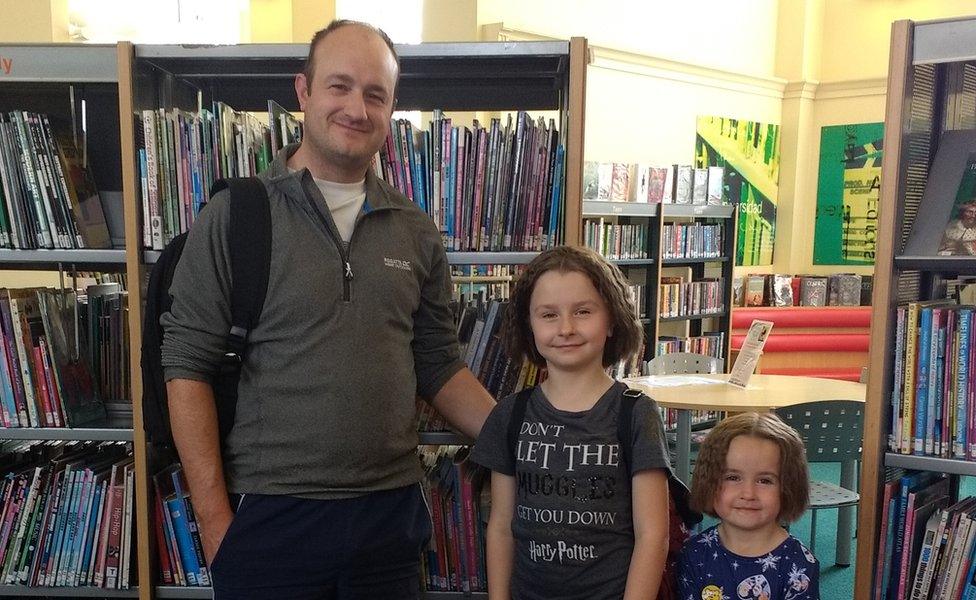
Richard Bailey, Isabel and Imogen
Central Library knows its audience, too, it seems. Young readers are offered a holiday reading challenge, with rewards and - highly rated by Isabel and Imogen - a magician.
Isabel, collecting a stash of books about gymnastics, likes the relative silence, compared to home.
"I really like it because it's quiet and peaceful," she says, pointing out peace is not something her little sister will let her have normally.
Imogen, sitting nearby, is oblivious, quietly absorbed in her book.
This article was created as part of We Are Middlesbrough - a BBC project with the people of the town to tell the stories which matter to them.
For more information about We Are Middlesbrough follow #BBCWeAreMiddlesbrough on social media. You can also email us wearemiddlesbrough@bbc.co.uk

Get in touch
What are you proud of about the town and what are the stories you think we should tell more people about?
Have you got a question about Middlesbrough you would like us to answer? You can use the tool below to submit your suggestions.
If you are reading this page on the BBC News app, you will need to visit the mobile version of the BBC website to submit your question on this topic.